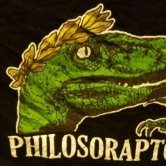Leaderboard
Popular Content
Showing content with the highest reputation on 01/28/2023 in all areas
-
I copied the emotion graph and wanted to comment on how it made me aware of the wide range of emotions we as humans are capable of. A little off topic but looking at it reminds me that we were taught not to feel them. I’m so glad I can claim my humanity and not feel condemnation that I am being earthly and leaning on sense knowledge when I feel what I feel.4 points
-
I think when VPW taught that sincerity is no guarantee for the truth that is what they call a “Freudian slip”.3 points
-
I'd like to reboot the thread, maybe make it a little less Mikish and a little more what were we talking about again? No longer having a stake in the "rightly-divided" answer opens up various avenues of exploration. I've seen you guys discussing this "absent Christ" issue for years now, and I honestly don't even remember the various things I've said about it. Is it possible, in my desire to find fault with VPW, that I hopped on the "how dare he say Christ is absent" bandwagon? It would have been easy. CES (STFI, John Lynn, Schoenheit, et al) criticized the "absent Christ" doctrine without overly criticizing Wierwille. I know I've recently said some variation of the following, and I stand by it: To some extent, Christ MUST be absent, or anticipating his return would be rather pointless. At the last supper, Jesus says do this "in remembrance" of me. You don't "remember" something that's present. You recognize it. You acknowledge it. You don't remember it. Christ must in some way be absent. But let's go a little further (as I believe some of you have). The Bible does not speak of a "return" of Christ, or a "second coming." The word translated "coming" is better translated "presence," as in, it's his presence, not his return, that is the hope of the Christian. Now you may say, same thing. And I may agree, except God (or Paul, or whoever chose the word paraousia) has a purpose for everything he says... So if your hope is in his return (Biblically, his presence), then the current state of affairs must necessarily imply, in some manner, his absence. So I don't think the "absent Christ" is unBiblical at all. It's the present Christ that needs defending, for if he is currently present, how can his presence be your hope? And yes, I understand there are ways in which he is present as well. They've been articulated effectively. The problem, as I see it, is this need to have one answer be correct and the other incorrect, when the Bible clearly teaches both. He is present with us by way of (the H)holy (S)spirit [I am not taking sides on that one]. He is present with us in prayer. He is the Word, and as such is present where his word is taught. "The Word takes the place of the absent Christ" is a problematic statement, but not because it posits an absent Christ. The Bible posits an absent Christ. "The Word takes the place of the absent Christ" is problematic because it doesn't. At least not completely. No one thing takes the place of the absent Christ. But all these things together do. The Word. The spirit. Fellowship. Prayer. Love. Mercy. The manifestation of the spirit. The fruitage of the spirit. YOU. YOU take the place of the absent Christ. Isn't God wonderful?3 points
-
Funny I just don’t see that playing out in Jesus life and example in any fashion. He portrayed a lot of emotion as well as sharp logic. What I most certainly do see suppressed all the time is common logic due to emotional attachment. When you make a habit of suppressing things it leaks out in other areas.2 points
-
I am so grateful to you OldSkool for taking the time to put the above together. It's clear and precise and absolutely proves from scripture how involved Christ is in our lives. And it so negates the "absent Christ" dogma of twi. As you might remember, I only began posting on GSC recently (in late November of last year to be exact), and it was only after I began reading many of the posts on this thread at the time. That was when I realized that buying into the "absent Christ" doctrine and practices of twi had resulted in me only having an intellectual knowledge of Christ as you wrote about above, "Now this is where wierwille's doctrine stops. Jesus Christ is ascended and is seated at the right hand of God and doesn’t do much except have his name attached to the end of a prayer and we benefit from his accomplished works." Since then, you and many others helped me to understand that Christianity is all about having a personal relationship with Christ. That's when everything changed between Christ and I. It's like instead of watching the same player in the same old hockey game over and over again , you can now get on the ice and actually play the game with him (or her) . I have made a word document of what you wrote as it's a great reference of truth concerning this topic.2 points
-
2 points
-
This is one "testimony" I can give about the absent Christ in my life while in twi. When I used to go witnessing, I don't remember bringing up Jesus much at all, certainly not about having a relationship with him. It was mostly about God and twi, pfal and twig fellowships. This must have been the case because for years after being out of twi, I felt uncomfortable mentioning Jesus in my conversations with others about God. It's still somewhat embarrassing even now to imagine me talking about him - the reasons for this I can't exactly put my finger on at the moment. I doubt I would have experienced any of the above if Christ was alive and kicking in twi.1 point
-
You got this backwards. YOU were the one arguing for the absent Christ. The others were arguing for a personal relationship. So, what YOU think Saint Vic taught about the absent Christ is wrong. YOU were thinking of oral tradition, which is woefully in error.1 point
-
Raf, I know I am a newbie, but I have shared my thoughts in green underneath your own. A question though: Did Jesus ever say God was an “absent Father” because He wasn’t actually present on earth when Jesus was?1 point
-
You mean like that feeling of elation you got when you thought Raf supported your position? No guarantee for truth, right?1 point
-
Other than wierwille or you who say “…Feelings and sincerity are NOT good for discerning truth” are there any normal people who believe that? Where does it teach that in the Bible? I imagine if one’s conscience was seared with a hot iron - as wierwille’s apparently was to consistently commit unconscionable acts - he probably wasn’t able to discern truth even when it hit him over the head with a 2 by 4! These kind of statements you make lead me to believe you are incapable of discerning truth from lies and fact from fiction. Who are you - really?!?! You defend your father in the word salad of lies and delusions. Are you originally from the real world? I guess it never occurred to you that you have no credibility here. Maybe having the sensitivity of a brick wall impaired your discernment- just a wild guess anyway. Feelings are part of the whole person! Feelings determine how we respond to truth. II Corinthians 7:10 says godly sorrow leads one to repentance…oh my gosh! Gone full circle here - back to 2nd paragraph - apparently wierwille never felt godly sorrow because he never repented of his unconscionable acts. If he had he would have brought forth fruit of repentance - that John the Baptist talked about in Matthew 3:8 - fruit that God and EVERYBODY would see!!!!1 point
-
Really good points. I wanna mull this and will post up a few thoughts shortly. Thanks Raf, the fresh perspective is appreciated.1 point
-
1 point
-
Exactly! What is the gap between the physical and metaphysical? Is there a bridge to span the gap? Is the gap – the separation of matter, the physical realm from the spiritual realm, something that can be measured? Is there another way or ways to quantify the two realms to explain the disparity between the two? Could absence also mean being undetectable in the physical realm? Can a divine being be both transcendent and immanent at the same time? And now for the self-referential portion of my post - mwah ha ha ha ha ha ha 1. T-Boneto 2 T-Boneto 3 T-Boneto 4 T-Boneto 5 T-Boneto 6 T-Boneto1 point
-
1 point
-
Just doing some simple math based on theses postulates: VPW takes the place of the absent Christ?1 point
-
According to Jung, Christ is symbolic of the self. So, you. And The Word is VPW. His views, his thoughts, his concerns. His repurposed stolen nonsense. And since the Great Principle is a Trojan horse, in which the self is willingly subdued and diminished, The Word takes the place of the Absent Christ. That IS what VPW was doing?1 point
-
1 point
-
1 point
-
Ugh. The lack of boundaries. Commitment until death?! And Ruth's special assignment was to get married and have a child.1 point







